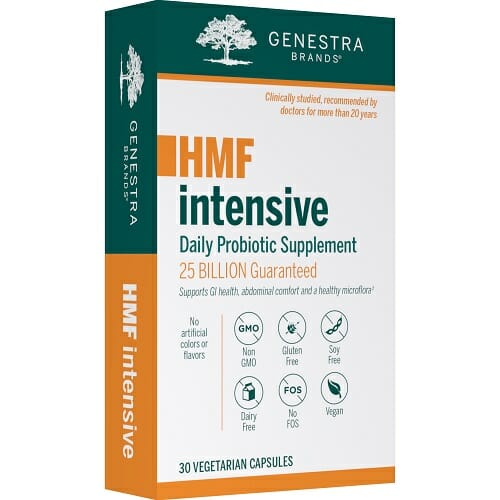Are Probiotics Vegan Friendly?

You also probably know the main tenet of being vegan— no consuming or using products that come from animals, alive or dead.
So if you want to follow a vegan diet and a probiotics regimen, you may logically ask yourself “are probiotics vegan”? The answer to this question actually has two parts and we’ll go over both, in addition to other common questions below.
Table of Contents
What Are Probiotics?

Are There Any Benefits to Taking Probiotics?
Probiotics are usually taken to bolster the stomach’s defenses against unfamiliar bacteria, which may be introduced when traveling and to repopulate the gut after antibiotics. Researchers have found that a healthy microbiome may be better able to withstand the introduction of illness causing bacteria like C. difficile and taking probiotics may reduce symptoms of both antibiotic-associated and travelers diarrhea. (1)(2)
In addition, changes and/or imbalances in the gut microbiome have been linked to diseases as diverse as inflammatory bowel disease, obesity, and metabolic syndrome.
Although further studies need to be done, it is thought that probiotic supplementation may help bring the gut back into balance by “improving symbiosis” of gut bacteria, the usually mutually beneficial action of working together (3).
Other purported benefits of probiotics range from improving the appearance of acne, reducing disease-causing bacteria in the mouth responsible for gum disease, and even reducing the symptoms of hay fever. Since there are an incredible diversity of probiotics, perhaps each with its own role in the microbiome, it may be best to stick with well studied strains if you are looking for support towards your health goals. Well studied strains include L. acidophilus and S. boulardii for gastrointestinal support and B. bifidum for recolonizing the gut after an antibiotic course and for its potential benefit in preventing traveler’s diarrhea.
Do Probiotics Fit Vegan Ethics?

It’s also important to consider that these healthy bacteria are present in varying amounts on all fresh fruits and vegetables and in fermented foods like kimchi, kombucha, and beer. Basically, it would be impossible to avoid consuming any kind of bacteria. Plus, given their helpful, symbiotic relationship to our bodies, you really wouldn’t want to.
What to Look for in a Vegan Probiotic
The other half of the question of whether or not probiotics are vegan has to do with the contents of the capsule— including the medium the cultures were grown in.
Probiotics very often have dairy in them, which automatically makes them vegan unfriendly. Although it may seem strange that dairy would be included in an otherwise vegan supplement, some of the microorganisms strains cultured for some brands are actually grown on dairy. This is also an important factor to consider even if you’re not vegan, but are lactose-intolerant.
While we’re on the subject of dairy, it is important to note that probiotic strains that sound like they contain lactose (lactobacillus acidophilus or L. acidophilus) and bifidobacterium lactis (B. lactis) don’t have dairy in them and they don’t need to be grown on dairy either. The strain names come from their function—they are thought to help digest lactose, and are often one of the first colonisers of an infant’s gut. (4)
Something else to keep in mind as you’re reading every label you come across so you can stick to your vegan diet—there are a few seemingly harmless ingredients that are actually animal products by another name. For example, gelatin is often used to make capsules easier to swallow but is made by boiling the hooves and other tissues of livestock so it’s definitely not vegan or vegetarian friendly. Magnesium stearate is a filler that is sometimes used in supplements. Since there are animal and vegetable sources of magnesium stearate and the labels can be vague, it’s best to choose a product that simply leaves this ingredient out.
A great vegan probiotic that ticks all these boxes, and a few more, is Genestra’s HMF Intensive Probiotic Supplement. It includes the gastrointestinal balancing strains of L. acidophilus and B. bifidum grown on vegan-friendly substrates, is free of additives, and contains over 20 billion CFU. If you want to stick to your vegan diet and keep your gut happy and healthy, Genestra’s supplement may fit in perfectly with your lifestyle.

Click here to experience the vegan-friendly probiotic goodness today.
Thank you for taking the time to read Are Probiotics Vegan Friendly?
Please note: All information presented to you in this website is intended for your general knowledge only and is not a substitute for medical advice or treatment for specific medical conditions. We cannot, and will not give you medical advice. We strongly recommend you consult your physician for any and all specific health issues. If you have any questions or contributions, please contact us via email or phone-call. We are constantly looking for new information to promote wellness – and hearing from you would make our day.
Live Vibrantly!
References:
- Probiotics for the Prevention of Antibiotic-Associated Diarrhea in Outpatients-A Systematic Review and Meta-Analysis
- Prophylactic efficacy of probiotics on travelers’ diarrhea: an adaptive meta-analysis of randomized controlled trials
- Linking the gut microbiota to human health
- MICROFLORA OF THE INTESTINE | Biology of Lactobacillus acidophilus – ScienceDirect

